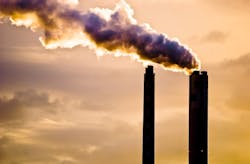Air pollution is linked to lower COVID-19 vaccine responses
People exposed to higher levels of air pollution before the pandemic had lower antibody responses to COVID-19 vaccines, according to a study led by the Barcelona Institute for Global Health (ISGlobal), an institution supported by “la Caixa” Foundation, in collaboration with the Germans Trias i Pujol Research Institute (IGTP).
In particular, exposure to fine particulate matter (PM2.5), nitrogen dioxide (NO2) and blank carbon (BC) was associated with about a 10% decrease in IgM and IgG antibody responses in people without prior infection. The findings, published in Environmental Health Perspectives, provide further evidence on the adverse effects of air pollution on the immune system.
Air pollution has been linked to adverse health outcomes, including lung cancer, cardiovascular and respiratory disease, and diabetes. Recently, ISGlobal researcher Manolis Kogevinas and his team showed an association between pre-pandemic exposure to air pollution and a higher risk of developing severe COVID-19.
Kogevinas and his colleagues analysed data from 927 participants of the GCAT Genomes for Life cohort (aged 40 to 65 years), who answered questionnaires and gave blood samples in the summer of 2020 (right after the first lockdown) and in the spring of 2021 (after the start of COVID-19 vaccination). All had received one or two doses of the main COVID-19 vaccines administered in Spain (made by AstraZeneca, Pfizer or Moderna). The research team measured IgM, IgG and IgA antibodies to five viral antigens (three of them on the Spike protein contained in the vaccine). Exposure to fine particulate matter (PM2.5), black carbon (BC), nitrogen dioxide (NO2) and ozone (O3) was estimated for each participant based on his or her address before the pandemic.
The results show that in uninfected individuals, pre-pandemic exposure to PM2.5, NO2 and BC was associated with a 5% to 10% reduction in vaccine-induced Spike antibodies. The decrease in antibodies was shown both for early IgM responses and late responses measured by IgG. The IgG response after the first dose peaked later in participants exposed to higher air pollution levels, and lower IgG levels persisted for several months after vaccination. Results were similar for the three vaccines.
Barcelona Institute for Global Health (ISGlobal) release on Newswise

